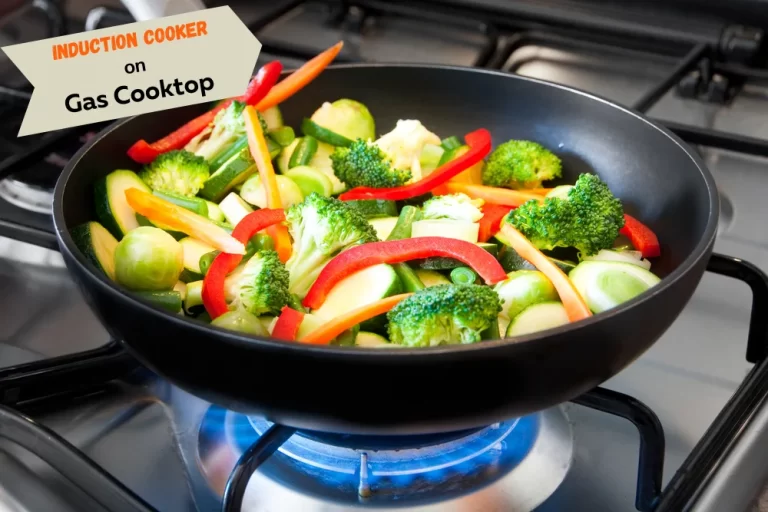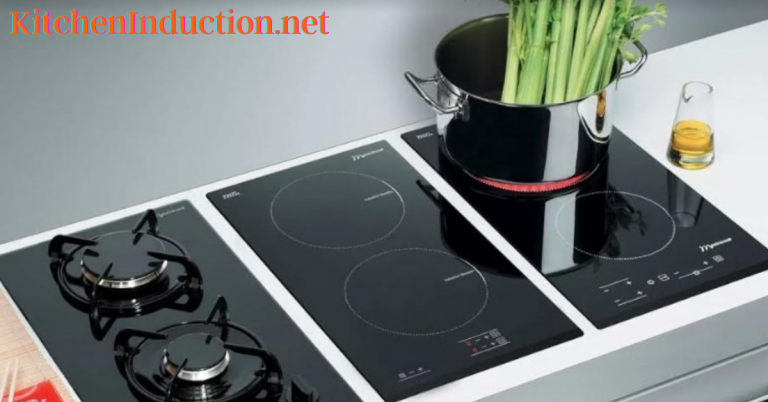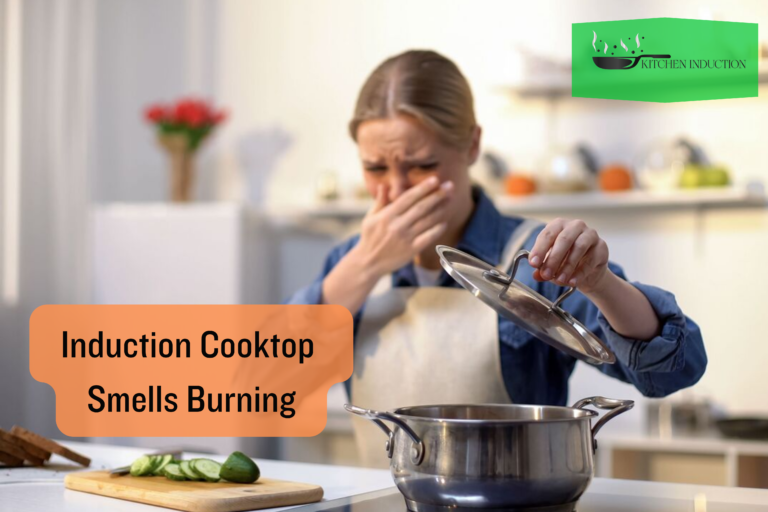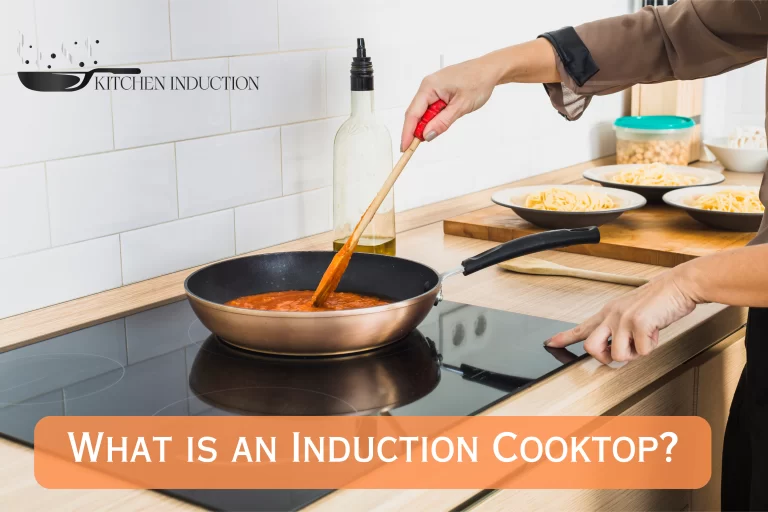Can Induction Cooktops Cause Fire? Safety Measures To Avoid
Induction cooktops have gained significant popularity in recent years due to their efficiency, precise temperature control, and sleek design. However, concerns regarding their safety, particularly the risk of fire, have also emerged. In this article, we will address the question, “Can induction cooktops cause fire?” and provide insights to dispel common myths while highlighting essential safety measures. Let’s dive in!
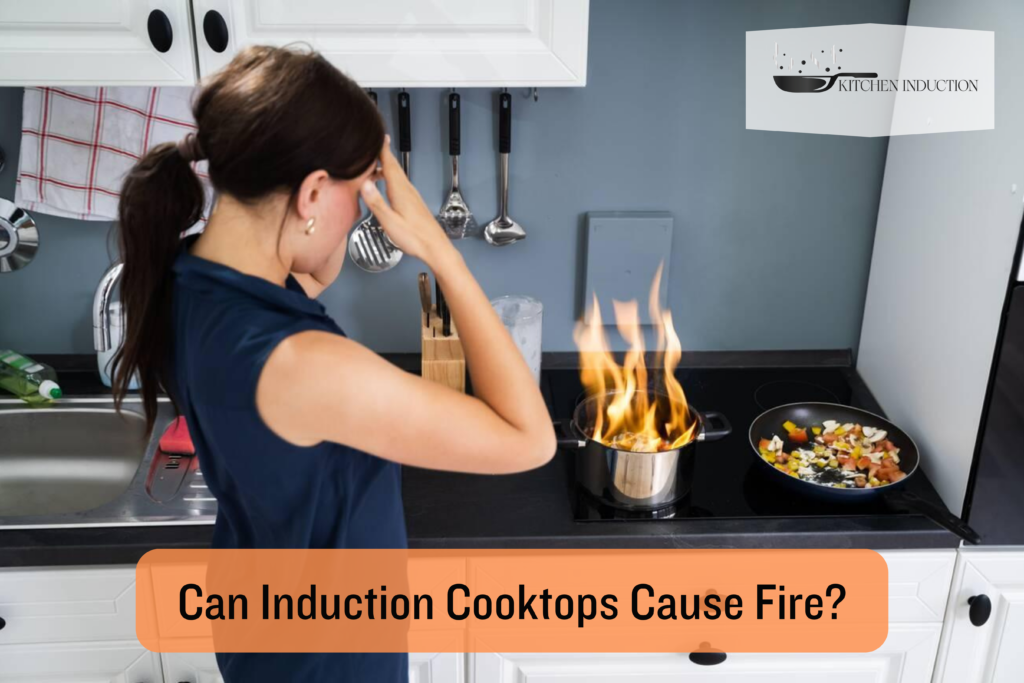
Contents
Can Induction Cooktops Cause Fire? The Truth about Hazards
Contrary to popular misconceptions, induction cooktops are generally considered safe and pose a minimal risk of fire. The absence of open flames and the limited heat generated on the surface make them inherently safer than gas or electric cooktops. However, it’s crucial to understand that safety risks can arise if proper precautions are not taken.
Ensuring Safety with Induction Cooktops
Induction cooktops come equipped with various safety features that contribute to a secure cooking environment. These features aim to prevent accidents and mitigate potential risks. Some common safety features found in induction cooktops include:
Automatic Shut-Off
Induction cooktops often have an automatic shut-off feature that activates when the cooktop is left unattended for a certain period or when it reaches a specific temperature. This helps prevent overheating and reduces the risk of fire.
Child Lock
Many induction cooktops offer a child lock function that prevents accidental activation or adjustments to the cooking settings. This feature ensures the safety of children and minimizes the chances of burns or injuries.
Residual Heat Indicators
Induction cooktops may have residual heat indicators that alert users when the cooking surface is still hot after use. These indicators serve as a visual reminder to avoid touching or placing items on the cooktop, reducing the risk of burns.
Pan Detection
Induction cooktops often feature pan detection technology, which automatically detects the presence of cookware on the cooking surface. This ensures that the induction elements activate only when compatible cookware is in place, reducing the risk of accidental burns or overheating.
Guidelines For Induction Cooktop
To ensure a safe cooking experience with induction cooktops, consider the following guidelines:
Proper Cookware Selection
Induction cooktops require specific cookware made of ferromagnetic materials such as cast iron or stainless steel. These materials facilitate the transfer of heat through magnetic fields. Before purchasing cookware, check for the induction compatibility symbol or use a magnet to test its suitability.
Maintenance and Cleaning
Regular maintenance and cleaning play a vital role in preventing any potential hazards. Keep the cooktop surface clean and free from grease, food debris, or flammable substances. Follow the manufacturer’s instructions for cleaning methods and avoid using abrasive materials that can scratch the surface.
Avoiding Overheating
Induction cooktops have built-in safety features like automatic shut-off mechanisms that activate when the cooktop reaches a certain temperature threshold. However, it’s important to avoid overheating by not leaving the cooktop unattended for extended periods and using appropriate heat settings for different cooking tasks.
Elements That Can Cause Fire in Induction Cooktops
While induction cooktops are generally safe, certain elements or actions can potentially lead to fire hazards. It’s important to be aware of these factors and take necessary precautions to prevent accidents. Here are some elements that can cause fire in induction cooktops:
Flammable Substances
Placing flammable items such as paper towels, plastic utensils, or kitchen towels near the induction cooktop can increase the risk of fire. Ensure a clear and safe workspace by keeping flammable materials away from the cooking area.
Overheating Oil
Overheating cooking oil can lead to fire incidents. Avoid heating oil beyond its smoke point and always monitor the temperature when frying or deep-frying. Be cautious when using high heat settings, and never leave hot oil unattended.
Cookware Overhang
When using oversized cookware or pans that extend beyond the cooking zone, there is a risk of heat spreading to nearby objects, causing fire hazards. Ensure that the cookware used is appropriately sized and centered on the induction elements.
Cooking Unattended
Leaving the induction cooktop unattended while cooking can lead to accidents, especially if the food or oil overheats or boils over. Always stay in the kitchen and regularly check on your cooking to maintain safety.
Remember, understanding the potential fire hazards and taking necessary precautions can greatly minimize the risks associated with induction cooktops, ensuring a safe and enjoyable cooking experience.
Myths vs. Facts: Clearing the Misconceptions
Let’s debunk some common myths surrounding induction cooktops:
Electromagnetic Fields and Radiation
One prevalent concern is the potential health risks associated with electromagnetic fields (EMF) and radiation emitted by induction cooktops. Many people worried that induction cooking is safe for human health or not. However, scientific studies have shown that the EMF levels produced by these cooktops are well below the established safety limits, posing no significant health hazards.

Compatibility with Pacemakers
Another myth suggests that induction cooktops can interfere with pacemakers or other medical devices. Rest assured, modern induction cooktops are designed to meet stringent safety regulations and are electromagnetically shielded, making them safe for use around pacemakers or other similar devices.
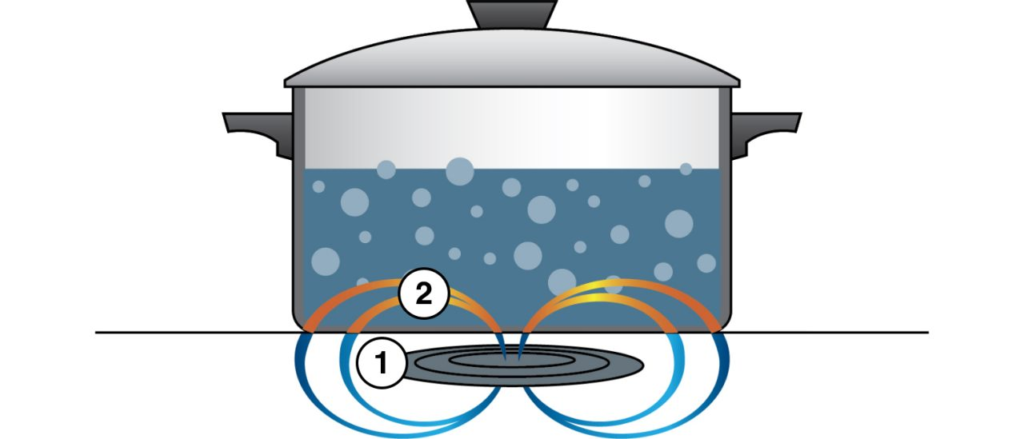
Conclusion
In conclusion, induction cooktops are generally safe and do not pose a significant risk of fire. By understanding their functioning and following essential safety measures, you can enjoy a worry-free cooking experience. Remember to choose cookware specifically designed for induction cooktops, maintain cleanliness, and avoid overheating.
It’s important to dispel the misconceptions surrounding induction cooktops. Scientific research confirms that the electromagnetic fields emitted by these cooktops are within safe limits and do not pose health risks. Additionally, modern induction cooktops are designed to be compatible with pacemakers and other medical devices, ensuring user safety.
Incorporating an induction cooktop into your kitchen brings numerous benefits, including energy efficiency, precise temperature control, and a sleek aesthetic. However, as with any kitchen appliance, it is crucial to prioritize safety to prevent accidents and ensure a positive cooking experience.
By following the guidelines provided in this article and understanding the facts versus myths, you can confidently embrace induction cooktops as a reliable and safe option for your culinary adventures.
Remember, knowledge and awareness are key to maintaining safety in the kitchen. Enjoy the convenience and efficiency of induction cooking while prioritizing caution and adherence to recommended safety practices.
With these insights, you can now make an informed decision about using induction cooktops without the unnecessary fear of fire hazards. Happy cooking!
Note: The information provided in this article is for general informational purposes only. For specific safety guidelines and recommendations, always refer to the manufacturer’s instructions and consult relevant experts if needed.

